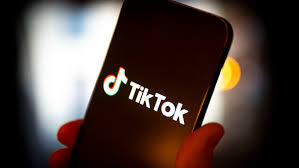On Thursday, TikTok refuted claims made by the US government that the well-known social media platform is not protected by the First Amendment by drawing comparisons between its platform and well-known US media companies that are controlled by foreign companies.
The Justice Department contended last month in a legal brief submitted to a federal appeals court in Washington that TikTok’s global and U.S. arms, TikTok Ltd. and TikTok Inc., are not entitled to First Amendment protections because they are “foreign organizations operating abroad” or are owned by one. ByteDance, the parent company of TikTok, is based in China.
The First Amendment is a crucial component of TikTok’s legal defense against the federal statute that requires ByteDance to sell TikTok to a sanctioned buyer or risk being banned.
They contended in a court filing on Thursday that TikTok’s American subsidiary does not lose its constitutional rights just because it is controlled by a foreign company.
They contrasted TikTok with well-known news sites like Politico and Business Insider, which are both under the ownership of German publisher Axel Springer SE.
They also mentioned Fortune, a business publication that Thai entrepreneur Chatchaval Jiaravanon owns.
Laptops 1000The TikTok lawyers argued that “no precedent” supported what they called “the government’s dramatic rewriting of what counts as protected speech,” saying that “the American companies that publish Politico, Fortune, and Business Insider do not lose First Amendment protection because they have foreign ownership.”
The Justice Department contended that ByteDance and TikTok never made legitimate free expression grounds in their legal challenge against the law in a redacted court document last month.
The department said the measure addressed national security concerns regarding TikTok’s ownership without focusing on protected speech.
Talks to address the government’s concerns have been held in recent years between the Biden administration and TikTok. But a settlement could not be reached by the two parties.
According to TikTok, the government almost gave up on negotiations when it presented a 90-page deal outlining the company’s strategy for resolving app-related issues while keeping connections with ByteDance.
However, according to the Justice Department, TikTok’s plan did not fully address some of the government’s concerns and “failed to create sufficient separation between the company’s U.S. operations and China.”
The government said that Project Texas was insufficient to protect against national security issues because of some data transfers between TikTok personnel and ByteDance engineers in China.
Additionally, federal representatives have maintained that it would have been hard to effectively police the proposal’s compliance given TikTok’s scale and reach.
Attorneys for TikTok stated on Thursday that several of the agreement’s shortcomings, as perceived by the government, were not brought up during negotiation.
Separately, the DOJ requested in a brief on Thursday night that the court accept evidence under seal because it believed the case involved material that was “Top Secret.” TikTok is refusing to comply with those requirements.
On September 16, the case’s oral arguments are expected to start.

















